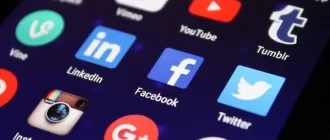In today’s digital age, social media has grown to become an indispensable marketing tool for businesses across industries, including the medical sector. With billions of users worldwide, these platforms offer an immense potential for medical service providers to tap into a vast pool of prospects, engage with their target audience, and ultimately drive growth.
However, with the ever-growing plethora of social media networks out there, selecting the right platform to showcase your medical services can be a daunting task. Worry not! We’ve got you covered. In this comprehensive guide, we’ll help you navigate through the complex world of social media advertising, specifically tailored to the medical services industry.
We will delve into the unique features, advantages, and drawbacks of various social networks, to evaluate which platform best aligns with your medical practice’s goals, audience, and budget. So, strap in and let’s embark on this exciting journey to revolutionize your medical services advertisement efforts.
Importance of Social Media for Medical Practices
The importance of social media for medical practices cannot be overstated in today’s digital age. Engaging with patients through social media platforms allows healthcare providers to offer personalized care and health education. Social media plays a vital role in raising public awareness about various health concerns and helps counter misinformation regarding health issues by directing users to credible sources.
Moreover, social networks expand the reach of medical practices and aid in recruitment efforts. By building a robust online presence, healthcare providers can effectively share timely, accurate, and informative health-related content, fostering trust and credibility among patients and the wider community.
Advantages of Combining Social Media and Medical Practice
Combining social media with medical practice offers a plethora of advantages for healthcare professionals. By engaging with patients and the healthcare community through social media platforms, doctors can expand their reach and network, boost their practice’s visibility, and ultimately, provide better services to their patients.
One key advantage of this integration is the potential for improved patient care, as doctors can easily share relevant health information and updates. Furthermore, healthcare professionals can use social media to exchange ideas, discuss medical advancements, and foster meaningful relationships with colleagues in their field, thereby promoting collaboration and continued learning.
Top Social Media Platforms for Medical Practices
Selecting the appropriate social media platform is crucial for advertising medical services effectively. By leveraging popular networks that cater to the medical community, your practice can showcase its offerings while engaging with potential clients. The top platforms for medical practices are Sermo, Doximity, and DailyRounds. These networks offer an ideal space for healthcare professionals to connect while ensuring a compliant and secure environment for sharing pertinent information.
Additionally, mainstream social media platforms like Facebook, Twitter, and LinkedIn can help widen your practice’s reach. These channels, when used responsibly, allow for the promotion of accurate health messaging and can significantly impact public awareness. Keep in mind the importance of adhering to rules and regulations when using these platforms, and focus on sharing factual, informative, and timely content to engage your audience effectively.
Facebook as an Effective Tool in Marketing Healthcare Services
Facebook has proven to be an effective tool in marketing healthcare services, providing numerous benefits to medical professionals and patients alike. With over 1.3 billion users, Facebook offers unparalleled reach, allowing physicians to target specific demographics and engage with potential patients more effectively. This powerful platform helps build brand loyalty, enhance local SEO, and generate leads, ultimately driving more patients to medical practices.
Emphasizing the importance of an active online presence, Facebook enables healthcare providers to share engaging content tailored to their medical specialty. Incorporating regular updates, informative articles, and eye-catching visuals can increase patient engagement and establish the physician as a top healthcare expert. In addition, Facebook’s ad targeting capabilities allow practices to extend their reach even further, making it an essential component of a successful healthcare marketing strategy.
LinkedIn for Direct Information Sharing and Keeping Up-to-Date
LinkedIn has proven to be an invaluable platform for medical professionals seeking to share information and stay updated in their fields. It allows for direct communication and networking opportunities with peers and industry leaders. In addition, the platform is an excellent source of relevant resources, updates on medical practices, and advancements in healthcare.
By utilizing LinkedIn, medical professionals can enhance their credibility, expanding their connections not only with fellow medical practitioners but also with potential patients. An optimistic feature of LinkedIn is the potential to build a strong professional brand, positioning oneself as an expert in the field. This networking tool offers targeted marketing opportunities, allowing for specialized access to potential clients and industry partners.
Twitter for Direct Communication and Time-saving
Twitter stands as a fantastic option for advertising medical services. The platform’s user-friendly interface enables healthcare professionals to establish direct communication with their patients. Furthermore, Twitter’s concise format is particularly suited for busy practitioners. By limiting each post to a certain word count, the platform ensures its users can save time and effort when sharing medical information and updates.
With an optimistic outlook, it is evident that Twitter’s emphasis on straightforward, accessible content has garnered significant appreciation. Healthcare providers can undoubtedly benefit from this popular platform by keeping their practice relevant, posting timely updates and engaging a diverse range of potential patients. All in all, Twitter proves to be a valuable addition to any medical establishment’s social media presence.
Instagram for Sharing Treatment Outcomes and Facilities
Instagram has proven to be an excellent choice for promoting medical services, particularly when it comes to showcasing treatment outcomes and facilities. This visually-driven platform allows healthcare providers to share before-and-after photos, demonstrating the effectiveness of their treatments in a visually striking manner. Additionally, Instagram enables medical practices to showcase the cleanliness and organization of their facilities, making it easy for potential patients to get a glimpse of the environment they can expect.
The use of Instagram Stories and Highlights further amplifies the platform’s potential for healthcare marketing. Through these features, medical practices can share timely updates, educational content, and even patient testimonials, all while maintaining an optimistic tone. Instagram’s emphasis on visually appealing content combined with its growing user base makes it a powerful tool for advertising medical services, ultimately attracting new patients and improving overall patient experience.
Pinterest for Promoting Services Catered to Women’s Health and Wellness
Pinterest is an excellent platform for promoting services related to women’s health and wellness. With its large, engaged user base that primarily consists of women, opportunities for targeted advertising and brand awareness are abundant.
The platform offers advertisers various campaigns, such as awareness, consideration, and sales, to meet specific marketing goals. By leveraging interest and keyword targeting, businesses in the health and wellness industry can reach users who are actively searching for related content, making Pinterest a promising avenue for promoting women’s health and wellness services.
Choosing a Social Media Platform Based on Target Audience
When marketing medical services, understanding your target audience plays a crucial role in selecting the appropriate social media platform. Factors such as age, gender, and location of your potential patients can greatly influence the effectiveness of your chosen platform. For example, Facebook, with over 1.3 billion users, offers a large and diverse audience suitable for most medical practices and specialties. Facebook’s vast data offers precise targeting, allowing marketers to reach their intended audience based on age, interests, income levels, and more.
On the other hand, Instagram, with its 800+ million active users, is exceptionally popular among younger users under 30 years old. This visually-driven platform is ideal for promoting cosmetic services, aesthetic procedures, and to showcase the results of various treatments. Choosing the right social media platform for advertising is essential in connecting with potential patients, increasing brand awareness, and ultimately, driving new patients to your medical practice. Consider factors such as specialty type, target demographic, and the content you create to determine the best fit for your practice’s social media advertising strategy.
Conclusion
Deciding on the most appropriate social network for advertising medical services comes down to thorough research and understanding of your target audience. Analyzing each platform’s user demographics, engagement levels, and ad format options can help make an informed decision.
Furthermore, monitoring the performance of your ad campaigns and staying updated with the latest developments in health services advertising will ensure the most effective outcomes. Embrace the experiences and insights available from your peers and adapt your strategies accordingly in order to optimize your reach and impact in the healthcare community.







